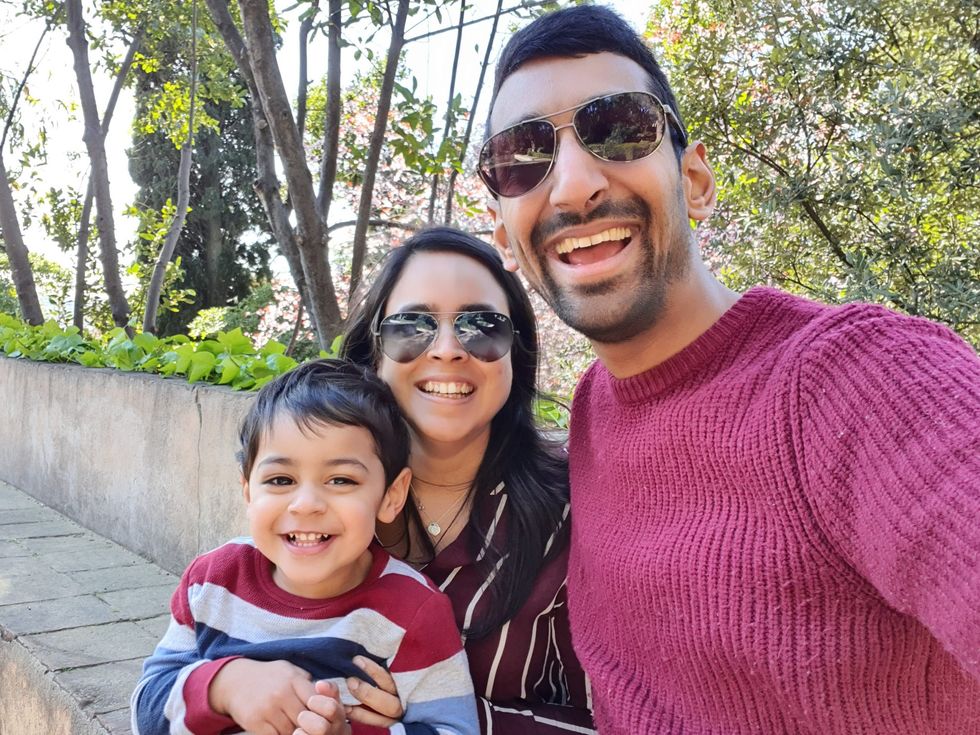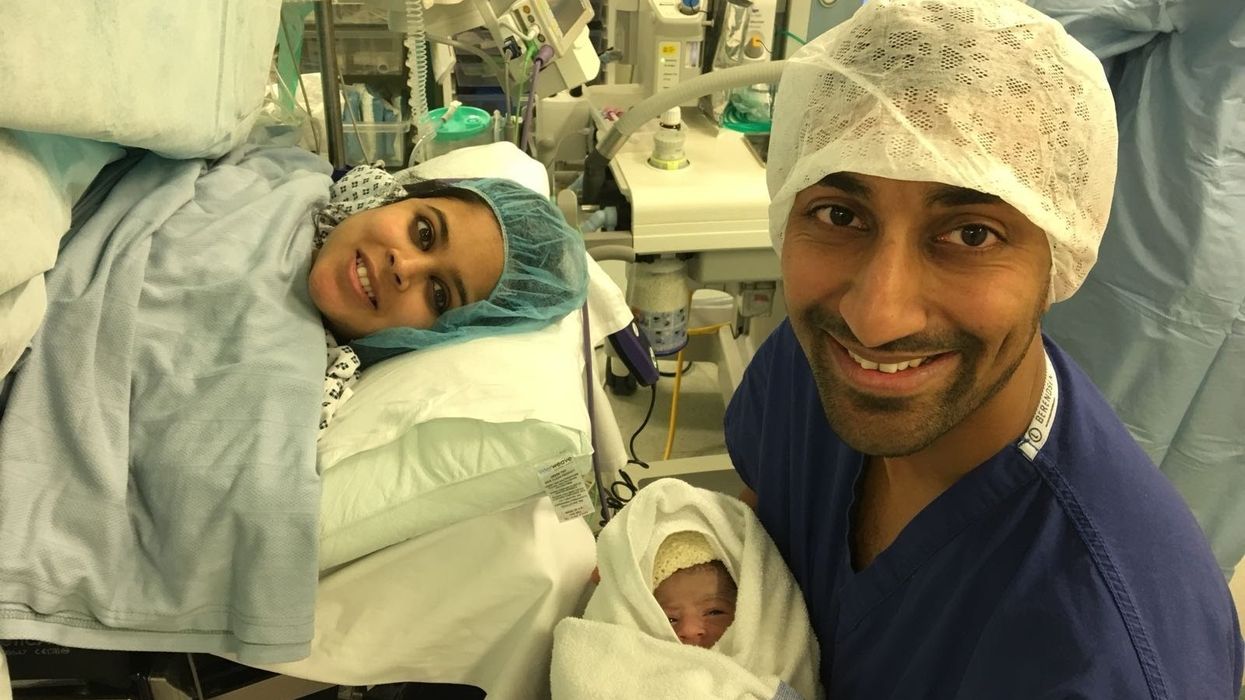by LAUREN CODLING
A MOTHER who almost died from a serious pregnancy-related health condition has urged expectant parents to seek help if they need it, as she voiced concerns that many will ignore symptoms due to the coronavirus crisis.
Khilna Shah, 35, suffered from pre-eclampsia, one of the leading causes of maternal death, during her pregnancy. The condition is caused by high blood pressure and can sometimes put both mother and baby in serious danger.
Speaking to Eastern Eye, Khilna said women may be hesitant to seek help if they experience symptoms due to the ongoing pandemic. Symptoms can include severe headaches, problems with vision, vomiting and rapid swelling of the face, hands or feet. “Due to the rapid increase in Covid cases and the significant strain on the NHS, more women are likely to put up with their symptoms, avoiding hospitals and GP surgeries where they can,” Khilna, from Wembley in north London, explained. “It is so important to seek medical advice if you have any concerns – better to be safe than put lives at risk.”
Due to current restrictions, some pregnant women have had to attend appointments on their own. However, if their blood pressure increases, they could lose consciousness, so their partners need to be aware of the symptoms and seek medical help if needed.

The pandemic has also resulted in expectant mothers being keen to get through their health appointments quickly, so they may not take in all the information required or ask the necessary questions. “You just want to be in and out quickly,” Khilna said. “You don’t want to spend
any more time in hospital than needed. I think this can certainly cause potential issues, in terms of the information you receive and take in.”
Although she was healthy during her pregnancy, Khilna experienced problems at 36 weeks. She had attended her baby shower, but later that evening, she began vomiting and had diarrhoea. She assumed it was food poisoning or a stomach bug, and even wondered if it could be early contractions. “It was my first time (having a baby) and I didn’t know what contractions were meant to feel like. I just knew they were painful,” Khilna said. “So I thought, this is natural pain and I would get through it.”
She went to bed, but woke up in hospital. Her husband Rupen had woken at 5:30am to find his wife completely unresponsive. She was not breathing and her eyes had rolled to the back of her head. She was rushed to hospital, where tests showed Khilna had had two major brain seizures in quick succession. It was caused by pre-eclampsia.
When Khilna finally regained consciousness, she was told by doctors that they had to deliver her baby by Caesarean section. Although Khilna can recall the birth of her son Dylan (who is now three years old), she felt it was all “a bit like a dream”. “I vividly remember Dylan being born, but the rest is still a bit of a blur,” she recalled. “I just thought it was all a dream. I remember waking up and not realising I had had the baby. It was only when one of the midwives said that my baby had been crying during the night and I had slept through it [that I realised what had happened].”
According to children’s charity Tommy’s, up to six per cent of UK pregnancies will be affected by pre-eclampsia. Globally, it is estimated that a woman dies every six minutes as a result of the condition.
However, Khilna does not believe that many women realise the symptoms or serious risks of pre-eclampsia. She also worries that issues relating to pregnancy are not discussed enough in the south Asian community.
“When something ‘bad’ happens to you, it can often be stigmatised,” she said. “Although some people are starting to open up, things that are perceived as ‘negative’ are still not openly discussed, such as issues relating to pregnancy complications, miscarriages as well as infertility.”
Her near-death experience has meant both Rupen and Khilna are reluctant to have more children. “We would have ideally liked to have had more children,” she said. “But having gone through what we did, it scares us to try again. It’s not worth the risk of Dylan potentially losing his mother.”
The couple have been supporting Action on Pre-Eclampsia (APEC), a charity that focuses on increasing awareness of pre-eclampsia and helping families who have been through it. Khilna said: “We must increase awareness of one of the leading causes of maternal death so that people are better informed and can recognise symptoms as early as possible. People should not feel scared to seek help if they need it.”
For more information, see https://action-on-pre-eclampsia.org.uk/




